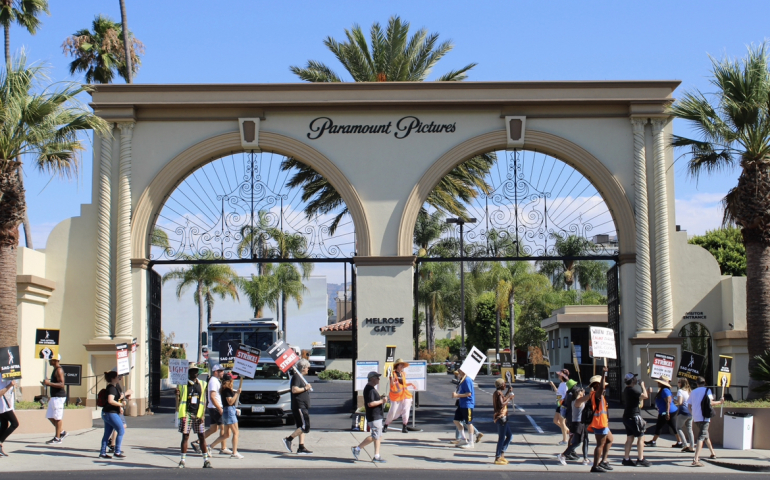The Writers Guild of America (WGA) is the representative of nearly 12,000 writers in show business all across the United States. However, for 148 days, between May and September, the WGA went on strike over a labor dispute with the Alliance of Motion Picture and Television Producers (AMPTP). This strike is the longest interruption to American film and television since the COVID-19 pandemic. The writers wanted a new contract to replace a three-year deal that expired on May 1, 2023. A majority of the WGA’s membership voted previously in April that they would strike if an agreement was not reached. With no agreement being made, the WGA’s West and East Coast divisions voted to call a strike. This meant that members of the WGA would stop working until an agreement was reached. So, while this means no new scripts for your favorite TV shows or movies, this also means that they were forgoing income from writing during the duration of the strike.
As a result of the strike, many film and television productions were halted, which resulted in some studios having to shut down their businesses. It also led to a reduction in staff for many companies. However, the ripple effect doesn’t just stop there. With the slowing down or complete halt of their productions, many other people who work in the entertainment business have to find work elsewhere, working as electricians, caterers, directors, and more.
The main focal point for the strike is the residuals from streaming media; the WGA claims that the AMPTP’s share of these residuals has cut the writer’s average income. The median weekly writer-producer pay has been declining over the last decade. Also, the use of artificial intelligence (AI), such as ChatGPT, was used as a way to replace writers completely. Writers wanted AI to be used as a tool to help with research or facilitate script ideas, not as a tool to fully replace them. Overall, the WGA was demanding higher pay and a stable pay structure, as well as fairer deals, contracts, and provisions about the use of artificial intelligence.
Shows with new seasons coming out, such as Law & Order and Abbot Elementary, have their seasons being released according to plan because they already have the writing and filming completed for their respective shows. However, shows that would have premiered in September would have not been able to work on new seasons or series until the conclusion of the strike. Talk shows such as Jimmy Kimmel Live!, Late Night with Seth Meyers, and others were immediately impacted by the strike because their content is based on current events, and therefore they are unable to produce new episodes without a writers’ room. Several movies were also impacted, such as the new James Bond film, “Quantum of Solace.” With no writers, this means they were unable to work on sets for rewrites or to punch up scripts even though the film scripts were completed. This delays the release of these films.
SNU student Jeremy Alcorn voiced his support for the writers wanting fair pay, saying, “They have a right to fair pay and to have creative control and not be replaced by AI, especially with all the hard work they put into their craft.”
SNU student David Omosigho also voiced his support, but voiced the importance of awareness, “It is important for us as consumers and as the public to be aware of these situations happening. I don’t believe enough people even know this is going on, and that is pretty disappointing if I’m honest because this affects all of us.”
As a result of 148 days of striking, the WGA and the AMPTP came to an agreement after five days of negotiations. Both the East and West Coast WGA Board voted on a newly-negotiated agreement and members voted to ratify the contract. The end of the strike means writers will be allowed to return to work, and TV and movie productions will slowly begin to get back on track.
Photo by Chris Long on Unsplash
